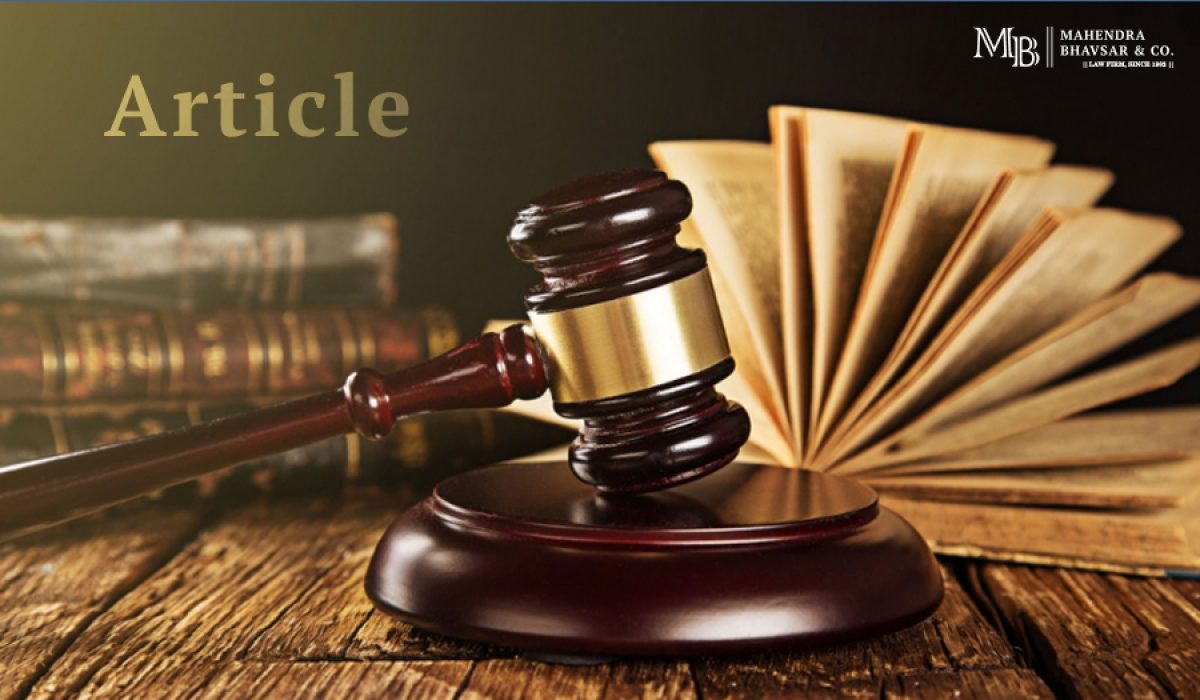High Court Rules Legal Heir Not Automatically Liable for GST Dues of Deceased Proprietor
Case: Rishi Shangari v. Union of India & Ors. | Judgment Date: 15 April 2025 | High Court of Jharkhand
Overview
In a significant judgment impacting taxation on succession, the High Court of Jharkhand quashed a GST recovery order issued against a legal heir, reiterating that liability under Section 93(1)(a) of the CGST Act, 2017 cannot be presumed in the absence of material proof of business continuity by the legal representative.
Factual Background
The petitioner, Rishi Shangari, challenged a demand order dated 28.11.2022 issued against his deceased father’s proprietary concern, M/s. N. Kumar and Company. The petitioner’s father, Navtej Kumar Shangari, passed away on 13.02.2018. Though the petitioner later obtained a fresh GST registration under the same trade name on 24.03.2018, he did so independently and not as a legal successor of his father’s GST registration.
Despite being informed of the father’s death and receiving the death certificate, GST authorities issued a summons and recovery orders for tax dues covering periods post-dating the father’s demise.
Key Legal Issue
- Whether the legal heir can be held liable under Section 93(1)(a) of the CGST Act for GST dues of a deceased proprietor without proof of business continuation in the same legal capacity.
Court’s Analysis and Ruling
The Division Bench comprising Chief Justice M.S. Ramachandra Rao and Justice Rajesh Shankar firmly held that:
- The petitioner had obtained a fresh registration, and the GST number of the deceased was cancelled in January 2020.
- No material evidence was cited in the impugned order to prove that the petitioner continued the business as legal representative rather than as a new proprietor.
- GST dues cannot be enforced against a legal heir in the absence of continuity in business under the deceased’s registration.
The Court characterized the tax order as “perverse and based on no evidence.” Accordingly, it quashed the recovery order dated 28.11.2022.
Legal Significance
This judgment underscores a crucial safeguard for legal heirs under GST law: liability for tax dues does not automatically pass upon death unless business succession is clearly established. Authorities must demonstrate actual business continuity by the legal representative under the same entity or GSTIN.
Conclusion
The High Court’s decision strengthens the principle of non-liability in taxation without evidence, reinforcing that succession alone does not equal tax obligation. This is a key precedent for GST practitioners handling cases involving deceased sole proprietors and their heirs.
FAQs:
Q1: Why did the High Court quash the GST recovery order?
The Court found that the GST authorities failed to prove that the petitioner continued the deceased’s business as a legal representative. The recovery order lacked any material evidence and was deemed “perverse and based on no evidence.
Q2: Does a legal heir automatically inherit the tax liabilities of a deceased sole proprietor?
No, tax liability does not automatically transfer. Under Section 93(1)(a) of the CGST Act, the heir can only be held liable if it’s proven that the business was continued in the same legal capacity.
Q3: What role did the new GST registration play in the judgment?
The petitioner had obtained a fresh GST registration in his own capacity, distinct from the deceased’s registration, which had been cancelled. This supported his claim that he did not continue the business as a legal successor.
Q4: What is the significance of this ruling for other legal heirs?
It affirms that legal heirs are not liable for GST dues unless they clearly continue the deceased’s business under the same GST registration. This offers legal protection to heirs from wrongful tax recovery.
Q5: What should legal heirs do to protect themselves from such liabilities?
Legal heirs should obtain separate GST registrations if they wish to start or continue a business independently, and ensure the deceased’s GST registration is formally cancelled. Communicating the death to tax authorities and maintaining documentary proof is also critical.
Q6: What precedent did this case establish under GST law?
It reaffirmed that presumptive liability cannot be enforced under GST without concrete evidence of business succession. This is now a guiding precedent in matters involving taxation and inheritance.
Stay informed with insights that matter. Follow us for more updates on key legal developments.
Disclaimer
The content provided here is for general information only; it does not constitute legal advice. Reading them does not create a lawyer-client relationship, and Mahendra Bhavsar & Co. disclaims all liability for actions taken or omitted based on this content. Always obtain advice from qualified counsel for your specific circumstances. © Mahendra Bhavsar & Co.
